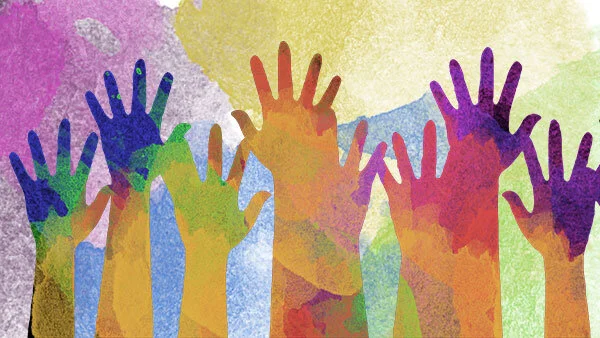
Our Impact
An Impact snapshot of our specialist trauma services
This page highlights how we’ve impacted children and families by providing specialist trauma support.
The pandemic, climate anxiety, the cost-of-living crisis, school challenges, and trauma continue to affect children's mental health.
In response, we’re offering more long-term support and ensuring each child referred has at least one parent supported. Our family-inclusive approach aligns with the Children’s and Young People’s Mental Health Coalition recommendations on addressing mental health barriers to school attendance.
May 2023 through to April 2024
Specialist trauma support
Our team of specialists create a recovery plan suited to each child’s needs and circumstances.
Through our Talk Together project we have offered a combination of parent/carer and child/ren sessions. This is reflected in our beneficiary divide.
2861 Primary beneficaries
1671 Secondary beneficaries
Primary beneficiary
This is someone who has received direct support from a treatment plan. For example, parental sessions, therapy, 1:1 or group, mentoring, consultations, etc.
Secondary beneficiary
Someone who has benefited indirectly from a treatment plan. For example, a parent who engaged with review sessions, siblings of the referred child, those who were supported by or engaged with signposting, Initial Assessments etc.
A child is always at the centre
The largest proportion, 87.4%, of the children we support are between the ages of 5-15. This remains consistent year on year.
We will likely direct the support to the parents if a child is younger than 4 years of age. All referrals have a child at the centre and our treatment plans are often family-inclusive.
Overall Impact
We have seen sustained year-on-year growth in the total number of people reached, totalling 11,163 in this reporting period. To break this down:
Complexity in need
65% of referred children have four or more presenting issues, a 7% rise from last year. The number of presenting issues offers an indication of case complexity.
Presenting issues include:
OCD traits
Anxiety
Eating Issues
At risk of going on part-time/exclusion
Risky/criminal behaviours
Drugs use
Feeling of numbness
Bereavement
Bullying
Who refers?
Kids Inspire receives referrals from a range of sources. This year, the trend remains similar to previous years. With a combined total of 78.8%, most referrals come from schools or directly from families.
Self-referrals/families: 34.6%
Education/schools: 44.2%
Health/GPs/CAMHS: 4.5%
Social care: 6%
Other (Police, justice, third sector): 10.5%
Therapy outcomes
We use the Outcomes Star as a user-friendly self-assessment tool with both children and parents.
The graphs below show the percentage progress made in outcome areas, for all clients, within the reporting period. Both indicate that engagement with services results in notable improvements in the measured areas.
Children's self-reported improvements
My Star outcomes
Confidence and Self-esteem – 63.4%
Feelings and behaviour - 69%
Relationships – 48%
Education and Learning – 46.7%
Friends – 46%
Family self-reported improvements
Family Star outcomes
Boundaries and Behaviours – 60.2%
Your Wellbeing – 60%
Meeting emotional needs – 58%
Education and learning – 51%
Overall positive changes:
This year our outcomes show that throughout their therapeutic journey:
97.5% of children and young people made 1 or more positive changes
82% of children and young made 2 or more positive changes
66% of children and young made 3 or more positive changes
Furthermore, a detailed breakdown of outcomes highlights the percentage of improvements in key areas. These key areas showcase the positive journey of transformation driven by our tailored interventions:
Trauma Informed Practice training
88% of participants felt the training helped them to understand the reasons for the behaviour of children impacted by trauma
2944 participants - made up of parents/carers, and professionals working with children - have trained over the past six years on our Trauma-Informed Practice Training informed by child development theories, neuroscience, nervous system resilience, and trauma resolution.
“I enjoyed looking at strategies to help ground students and think about the connections we have with others when working through trauma; it is so important to help with grounding and acceptance” - Participant
Community Engagement
Our Community Engagement Team builds relationships with the community and other organisations. This year they focused on schools in deprived areas across Essex and raising Kids Inspire’s profile within schools. They achieved this by:
delivering 18 mental health assemblies, reaching 2,312 children
running 10 activity-based holiday clubs for 214 children aged 5 to 11
hosting the first PROM-Unity event, providing free, pre-loved prom outfits for school leavers.
“Thank you so much for holding this event. My daughter got the most amazing dress! We are so incredibly grateful, I could not have afforded to buy a dress like this and to see her look and feel so fabulous in it makes me so happy. Everyone was so friendly and kind, it was a lovely experience, so again, thank you!” - PROM-Unity attendee
Evaluation & Monitoring
Evaluation and monitoring underpins every element of the Kids Inspire provision.
The collaboration between therapist and service user is central to our approach, reviewing routinely in every single meeting.
What’s next?
After a successful partnership year with Impetus, we now look ahead to the next three years of collaboration.
Our focus will be on achieving thoughtful, purposeful, and sustainable organisational growth, ensuring we continue to deliver a deep and lasting impact in the community.
Help us do more
Your support will help us to empower more children, young people and families to make positive life choices.
Fundraising events
From virtual to sporting to festive and challenging.
Mentor
Offer guidance and build trust with a young person.
Volunteer
Our award-winning volunteers help us to achieve so much.
Page updated: 10 October 2024





